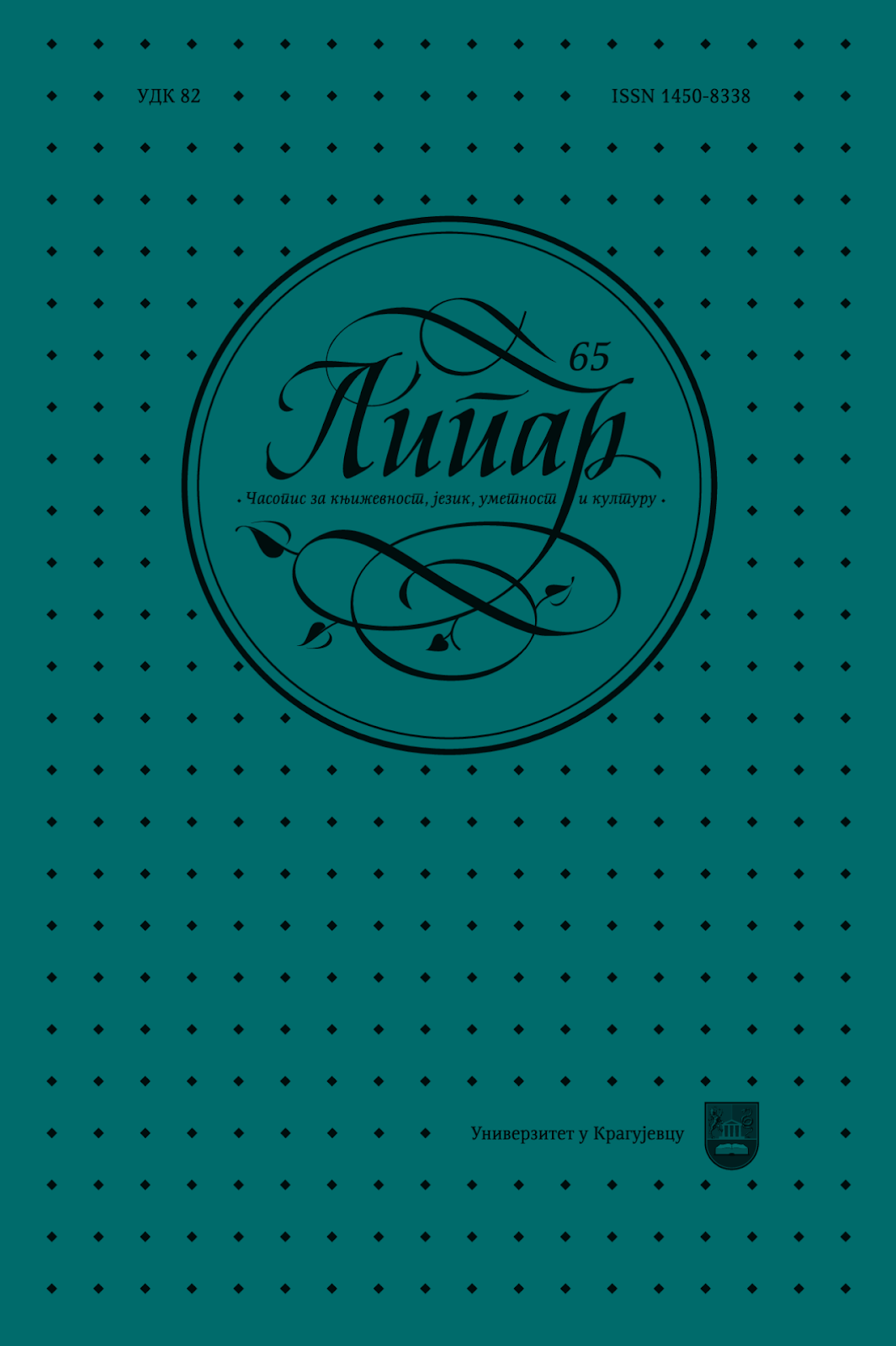ПРЕВРЕДНОВАЊЕ АНТРОПОЦЕНТРИЗМА И
ЕВРОЦЕНТРИЗМА У НАУЧНО-ПУСТОЛОВНИМ
ПРИПОВЕТКАМА Х. Џ. ВЕЛСА: „МОРСКИ
НАПАДАЧИ“, „ЦАРСТВО МРАВА“
THE TRANSVALUATION OF ANTHROPOCENTRISM AND
EUROCENTRISM IN H. G. WELLS’S SCIENTIFIC ROMANCE STORIES: THE SEA RAIDERS, THE EMPIRE OF THE ANTS
Author(s): Goran J. PetrovićSubject(s): Language and Literature Studies, Studies of Literature, Other Language Literature, Philology
Published by: Универзитет у Крагујевцу
Keywords: H. G. Wells;anthropocentrism;eurocentrism;evolution;ecocriticism;criticism of imperialism;scientific romance
Summary/Abstract: The aim of this paper is to show how H. G. Wells transvalues the values of anthropocentrism and eurocentrism in two of his scientific romances – The Sea Raiders and The Empire of the Ants. The stories are interpreted in the light of ecocriticism, whose fundamental assumption is that man is merely an animal species struggling to survive, and from the viewpoint of criticism of imperialism, which presumes that the colonized races must not necessarily remain forever in the shadow of the Europeans. In scientific terms, the interpretation relies on the agnostic understanding of evolution as an irrational force that, unlike the Christian metaphysical concept of God, is not benevolent to man. It also relies on the idea of 19th-century sociologists that the Europeans, and the British in particular, are in evolutionary terms the most highly advanced humans on Earth. Wells advocates the former idea and dismisses the latter, thus anticipating twentieth-century antiracism. The paper ends with a conclusion that the gigantic cephalopods from The Sea Raiders and the gigantic ants in The Empire of the Ants debunk two myths. Interpreted literally, they debunk the myth of mankind’s superiority, whereas in their metaphorical sense they invalidate the superiority of the scientifically advanced Europeans.In terms of the debunking of anthropocentric philosophy, Wells’ intelligent animals undermine the belief in man’s ability to undisputedly reign over nature. From the viewpoint of the invalidation of eurocentrism, however, the highly evolved monsters stand for Brazil’s indigenous peoples and African American serfs rebelling against the yoke of British imperialism. The latter interpretation debunks not only eurocentrism, but also a more specific kind of it – the notion of anglocentrism as denoting the supremacy of the colonial British in the world. In this sense, The Sea Raiders also reveal 19th-century Britain’s fear from Germany’s ever-rising military power. Wells’ ants, in comparison with his cephalopods, are better organized and therefore aim at conquest rather than short-lasting plunder. The two stories question the Victorian bourgeoisie’s indulgence in its technological progress by stating that not even science can enable man to achieve final victory against the evolutionary powers of nature.
Journal: Липар - часопис за књижевност, језик, уметност и културу
- Issue Year: XIX/2018
- Issue No: 65
- Page Range: 93-109
- Page Count: 17
- Language: Serbian

